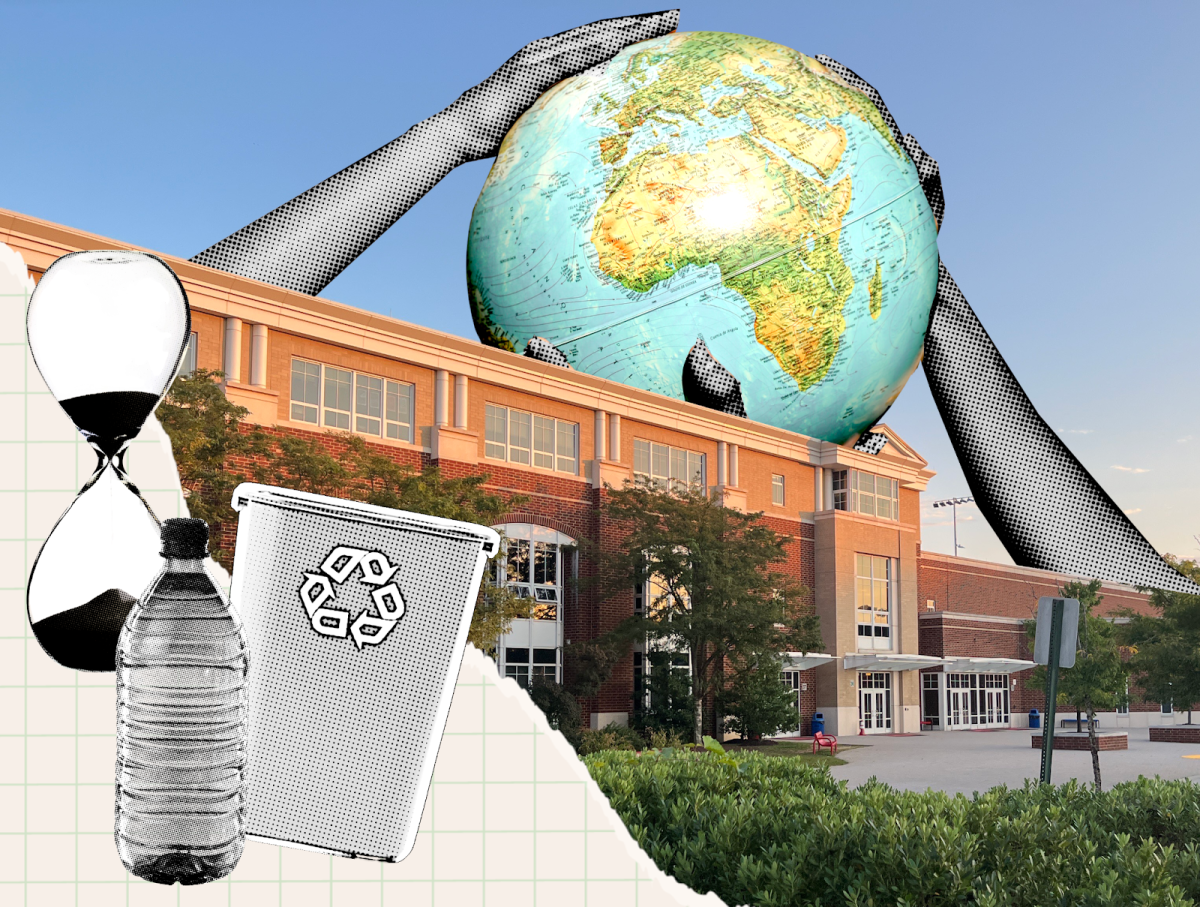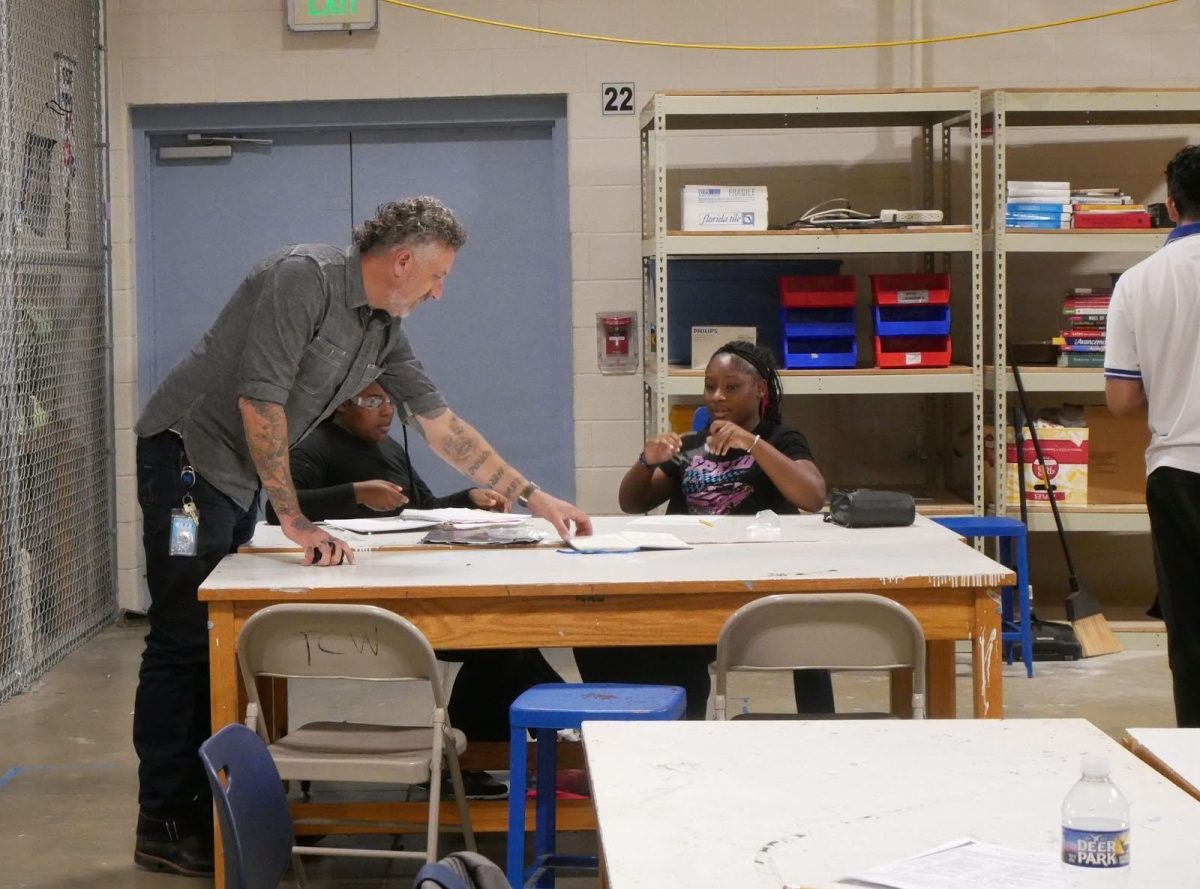Saving energy, reducing waste and the dangers of climate change are topics that are more current than ever. The frightening and severe effects of climate change such as worsening floods, fires, droughts and high temperatures are apparent. While it seems challenging to tackle climate change, there are small changes we can make at school in order to contribute to our responsibility of maintaining a livable planet. 62% of surveyed ACHS students believe that there is still a lot of room for improvement.
AP Environmental Science teacher Patrick Earle is a passionate biker whose house is 100 percent powered by renewable energy. Earle had many ideas on how to escape the “vicious cycle of waste.” For example, the use of single-use plastic such as forks and bags can be easily avoided by using reusable containers and metal utensils. The school separates trash into recyclable and non-recyclable waste. However, the recycling bin is contaminated if even one wrong item lands in the trash can. This forces custodians to combine recyclable and non-recyclable waste. For the school to tackle this problem, every student has to be aware of which materials are recyclable. This would reduce the need for landfills and incinerators, as those processes create substantial air and water pollution.
Earle said that “more awareness has to be raised [to the importance of saving energy and reducing waste.” “If it comes from the students, it will be more powerful,” he said. Earle said he suggests a school club preparing advisory lessons to inform students about the effects of climate change. Filling students in on this to make them conscious of how severe this topic is can motivate them to create change. Earle said that upcoming young voters are a powerful political force. If representatives of the new generations demand climate action, there will be a great audience and can reach decision-making politicians.
The ACHS school building is designed to be energy efficient. It was built as a LEED gold certified building, with features that reduce energy consumption, such as a white roof to reduce cooling costs by reflecting sunlight and absorbing less heat. The lights in the classroom also automatically shut down after a certain amount of time.
The school has many water dispensers in the hallways that not only significantly reduce plastic waste, but they also promote the use of tap water. Tap water is a more sustainable option than bottled water. These water dispensers should encourage students and teachers to adopt reusable bottles, reducing the schools reliance on single use plastic.
Alexandria deals with energy consumption well; however, the school does not make the most of it. Students could encourage teachers to lower the shades on the sunny side of the building to help prevent solar gains. This will automatically keep the rooms cooler and therefore requires less energy to keep classroom temperatures constant. Shutting the blinds or keeping windows closed to avert warm air from getting in are small and almost banal actions, however, they make a big difference.
“If everyone did their individual part to save energy, I do believe it would be helpful in addressing environmental issues,” said senior Eliana Rougle.
“In the [United States], we use way too much energy, and us and other places are experiencing the repercussions of our actions,“ said senior Bennett Sample.
According to a study published by the World Wildlife Fund, more than a third of Earth’s natural resources have been destroyed by humans in just thirty years. Today, we would need about 1.8 planets to provide the resources for our consumption and absorb our waste. This eco footprint is measured by the human demand on the Earth’s ecosystem, meaning that humans are borrowing natural resources from future generations.
“I have three daughters and I worry about the world they are growing up in,” said Earle. “I hope that by making changes in my own life, that I can inspire other people to make changes.”
As a school community, Titans should work together to combat climate change by preserving natural resources, reducing waste, and saving energy so that posterity can enjoy a sustainable world.








